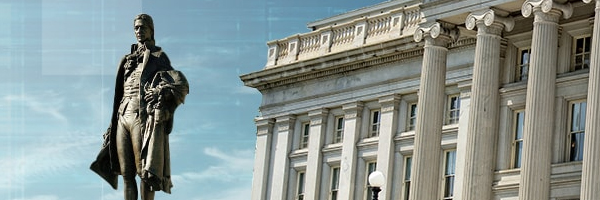
Section 4: Protests
Overview
This section consists of the following topics:
- General Information, and
- How to Protest a Check Reclamation
General Information
A protest is a request that the Bureau of the Fiscal Service (Fiscal Service) review its decision regarding the presenting bank's liability for a check reclamation.
It raises a valid legal or factual question and includes:
- A written statement, and
- Supporting documentation which proves that the presenting bank is not liable for the reclamation.
Presenting banks have 30 days from the date of the Notice of Direct Debit (U.S. Treasury Check Reclamation) to pay the full amount of the reclamation before their Federal Reserve master account is automatically debited. However, if the presenting bank protests within 30 days from the date of the Notice of Direct Debit (U.S. Treasury Check Reclamation), the direct debit will not occur. If a presenting bank enters a protest after the direct debit has occurred, and the protest is substantiated, Fiscal Service will refund the presenting bank the amount of the reclamation.
Note: Unpaid Reclamations which are under protest are identified by a code B in the Reclamation Status column on the Summary of Debt Statement.
Unacceptable Protests
Listed below are examples of unacceptable protests.
- Protests that are received after 60 calendar days from the reclamation date,
- Protests that include no or insufficient documentation to substantiate the protest,
- Protests that attempt to transfer liability from the presenting bank to the presenting bank's prior endorser, and
- Protests from any other entity than the presenting bank to which the reclamation was directed.
How to Protest a Check Reclamation
Procedure
The table below describes the process to protest a check reclamation.
Table may scroll on smaller screens
| STEP | ACTION | |
|---|---|---|
| 1 | Write a letter to the Fiscal Service requesting a review of its decision regarding the financial institution's liability for the check reclamation. The protest must be on your financial institutions letterhead, and include the check symbol and the check serial number so that the record can be identified in the Fiscal Service system. |
|
| 2 | Attach documentation to support the protest. Documentation may include, but is not limited to:
|
|
| 3 | Retain a copy of the Notice of Direct Debit (U.S. Treasury Check Reclamation) while the reclamation protest is being considered. | |
| 4 | Mail or fax the protest to: Department of the Treasury Bureau of the Fiscal Service Check Resolution Division P.O. Box 51318 Philadelphia, PA 19115-6318 |
Or Fax it to: Fax: 215-516-8201 Or email it to: NPRCReclamation@fiscal.treasury.gov |
How To Notify Fiscal Service That Reclamation Notice Is Not Your Item
Send an e-mail to: NPRCReclamation@fiscal.treasury.gov informing Fiscal Service that your bank did not present the check for payment.
Fiscal Service Response
Fiscal Service will send a letter to the appropriate financial institution providing status or the outcome of the protest within 60 calendar days of receiving the protest.
Fiscal Service responses may include:
If the protest was substantiated and the reclamation was paid, then the accumulated credit will be returned to the financial institution.
If the protest was substantiated and the reclamation was not paid, then the reclamation will be abandoned, and a disregard notice will be sent to the financial institution.
If the protest was not substantiated and the reclamation was paid, then a denial letter will be sent to the financial institution and the case will be closed.
If the protest was not substantiated and the reclamation was not paid, a denial letter will be sent to the financial institution. The financial institution will remain liable for the reclamation principal and any interest, penalty, and administrative fees assessed. The amount owed will be debited from the financial institutions Master Account five calendar days after the bank protest is denied.


